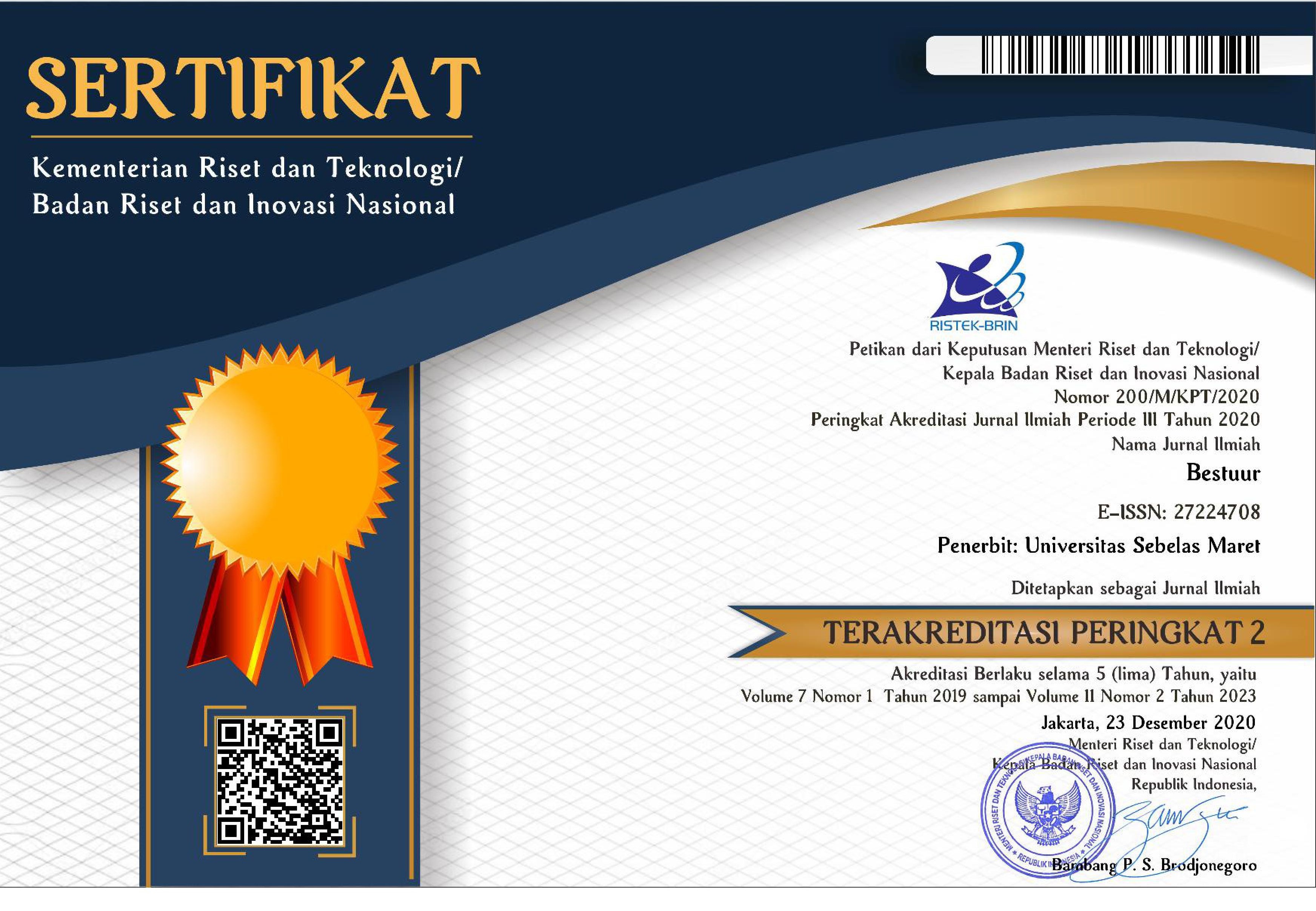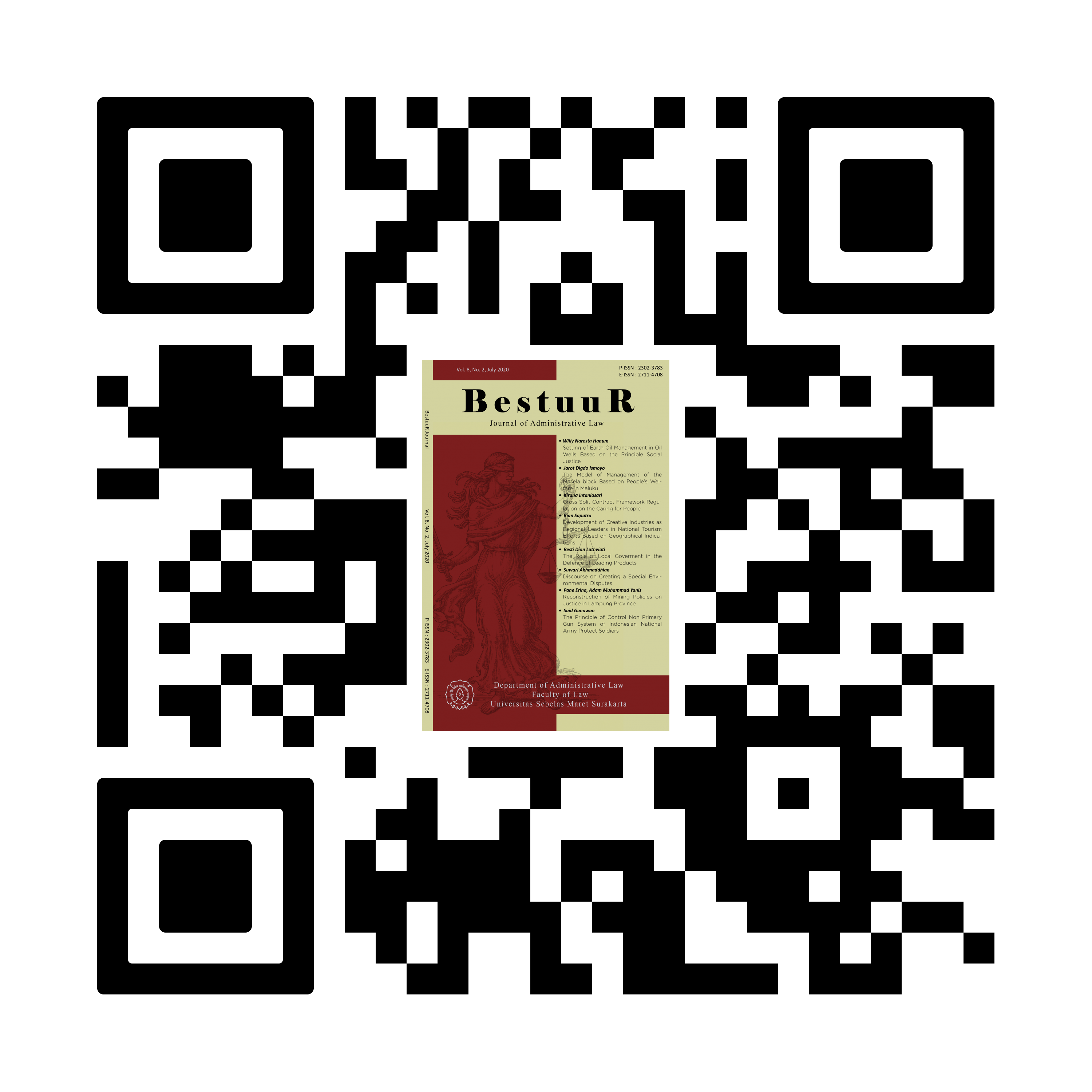Freedom of Expression in Malaysia: Compatibility with the International Human Rights Standard
Abstract
Malaysia is likely to introduce new laws on freedom of information. However, the important questions are whether the said laws are effective and will have enough bite with the public looking forward to opening government policy. Freedom of information has developed under international human rights law as the right to freedom of expression, including the freedom to seek, receive and impart knowledge and ideas through media, regardless of any frontier. This study aims to examine freedom of expression under the international realm, scrutinize the said freedom in the Malaysian legal framework, and discuss the proposed enactment of freedom of information laws in Malaysia in conformity with international human rights law. This research uses the qualitative research method. This study concludes that freedom of information in Malaysia is severely impeded by the enforcement of the Official Secret Act. This study calls for the repeal or amendment to the Act in conformity with international standards.
Keywords
Full Text:
PDFReferences
Daud, M. (2014). Wild speculations on the missing flight MH370: Balancing online expression and content regulation in Malaysia. International Conference on Law, Policy and Social Justice 2014, 3(September), 0–10. https://doi.org/10.13140/RG.2.1.2443.7287
Daud, M., & Zulhuda, S. (2020). Regulating the spread of false content online in Malaysia: Issues, challenges and the way forward. International Journal of Business and Society, 21(S1), 32–48, available at: Google Scholar.
Dettman, S., & Gomez, E. T. (2020). Political financing reform: Politics, policies and patronage in Malaysia. Journal of Contemporary Asia, 50(1), 36–55. https://doi.org/10.1080/00472336.2019.1571218
Gomez, E. T. (2009). The rise and fall of capital: Corporate Malaysia in historical perspective. Journal of Contemporary Asia, 39(3), 345–381. https://doi.org/10.1080/00472330902944404
Gomez, E. T. (2016). Resisting the fall: The single dominant party, policies and elections in Malaysia. Journal of Contemporary Asia, 46(4), 570–590. https://doi.org/10.1080/00472336.2016.1192214
Gomez, E. T., & Lafaye De Micheaux, E. (2017). Diversity of southeast Asian capitalisms: Evolving state-business relations in Malaysia. Journal of Contemporary Asia, 47(5), 792–814. https://doi.org/10.1080/00472336.2017.1322629
Hamilton-Hart, N. (2017). Opting for openness: Capital mobility and monetary sterilisation in Malaysia. Journal of Contemporary Asia, 47(2), 171–198. https://doi.org/10.1080/00472336.2016.1257045
Hutchinson, F. E. (2014). Malaysia’s federal system: Overt and covert centralisation. Journal of Contemporary Asia, 44(3), 422–442. https://doi.org/10.1080/00472336.2013.878374
Ichlas, R. I. (2020). Questioning the Independence of Media Coverage in the 2019 Elections. Jurnal Bestuur, 8(1), 53-59. https://doi.org/10.20961/bestuur.42725
Khairuldin, W. M. K. F. W., Anas, D. I. W. N. I. W. N., Ibrahim, I., & Fauzi, N. (2017). Freedom of speeches by mufti according to Islam: Implication to fatwa in Malaysia. International Journal of Academic Research in Business and Social Sciences, 6(12), 141-151. https://doi.org/10.6007/ijarbss/v6-i12/2581
Lee, H. A. (2012). Affirmative action in Malaysia: Education and employment outcomes since the 1990s. Journal of Contemporary Asia, 42(2), 230–254. https://doi.org/10.1080/09500782.2012.668350
Li, R., & Cheong, K. C. (2017). Huawei and ZTE in Malaysia: The localisation of Chinese transnational enterprises. Journal of Contemporary Asia, 47(5), 752–773. https://doi.org/10.1080/00472336.2017.1346697
Miles, L., & Croucher, R. (2013). Gramsci, Counter-hegemony and labour union-civil society organisation coalitions in Malaysia. Journal of Contemporary Asia, 43(3), 413–427. https://doi.org/10.1080/00472336.2013.775754
Mohd Sani, M. A. (2018). Islam and freedom of religious expression in Malaysia. The Journal of Social Sciences Research, SPI6, 1218–1224. https://doi.org/10.32861/jssr.spi6.1218.1224
Nawang, N. I. (2013). Political blogs and freedom of expression : A comparative study of Malaysia and the United Kingdom, available at: Google Scholar.
O’Shannassy, M. (2013). More talk than walk? UMNO, “new politics” and legitimation in contemporary Malaysia. Journal of Contemporary Asia, 43(3), 428–451. https://doi.org/10.1080/00472336.2013.783966
Poullet, Y. (2011). e-Youth before its judges – Legal protection of minors in cyberspace. Computer Law & Security Review, 27(1), 6–20. https://doi.org/10.1016/j.clsr.2010.11.011
Rasiah, R., Noh, A., & Tumin, M. (2009). Privatising healthcare in Malaysia: Power, policy and profts. Journal of Contemporary Asia, 39(1), 50–62. https://doi.org/10.1080/00472330802506790
Rehman, J., & Shahid, A. (2018). The asian yearbook of human rights and humanitarian law. Brill | Nijhoff. https://doi.org/10.1163/9789004346888
Rosidah, Z. N. (2020). Coherence of the rules of sharia against Pancasila. Bestuur, 8(1), 40-52. https://doi.org/10.20961/bestuur.v8i1.42723
Saravanamuttu, J., & Mohamad, M. (2020). The monetisation of consent and its limits: Explaining political dominance and decline in Malaysia. Journal of Contemporary Asia, 50(1), 56–73. https://doi.org/10.1080/00472336.2019.1569710
Singh, A. A., & McKleroy, V. S. (2011). “Just getting out of bed is a revolutionary act”: The resilience of transgender people of color who have survived traumatic life events. Traumatology, 17(2), 34–44. https://doi.org/10.1177/1534765610369261
Steele, J. (2013). “Trial by the press”: An examination of journalism, ethics, and Islam in Indonesia and Malaysia. International Journal of Press/Politics, 18(3), 342–359. https://doi.org/10.1177/1940161213484588
Tapsell, R. (2013). The media freedom movement in Malaysia and the electoral authoritarian regime. Journal of Contemporary Asia, 43(4), 613–635. https://doi.org/10.1080/00472336.2013.765138
Teh, Y. K. (2002). Money politics in Malaysia. Journal of Contemporary Asia, 32(3), 338–345. https://doi.org/10.1080/00472330280000231
Tham, S. Y. (2017). Examining the shift to services: Malaysia and China compared. Journal of Contemporary Asia, 47(5), 728–751. https://doi.org/10.1080/00472336.2017.1310273
Vithiatharan, V., & Gomez, E. T. (2014). Politics, economic crises and corporate governance reforms: Regulatory capture in Malaysia. Journal of Contemporary Asia, 44(4), 599–615. https://doi.org/10.1080/00472336.2014.923634
Weiss, M. L. (2013). Parsing the Power of “New Media” in Malaysia. Journal of Contemporary Asia, 43(4), 591–612. https://doi.org/10.1080/00472336.2012.759332
Zhang, M., Rasiah, R., & Lee, J. K. Y. (2017). Navigating a Highly Protected Market: China’s Chery Automobile in Malaysia. Journal of Contemporary Asia, 47(5), 774–791. https://doi.org/10.1080/00472336.2017.1345000
DOI: https://doi.org/10.20961/bestuur.v9i1.51637
Refbacks
- There are currently no refbacks.
Copyright (c) 2021 Saidah Fasihah Binti Che Yussoff, Rohaida Nordin
License URL: https://creativecommons.org/licenses/by/4.0/
|











_CROSREF.jpg)




